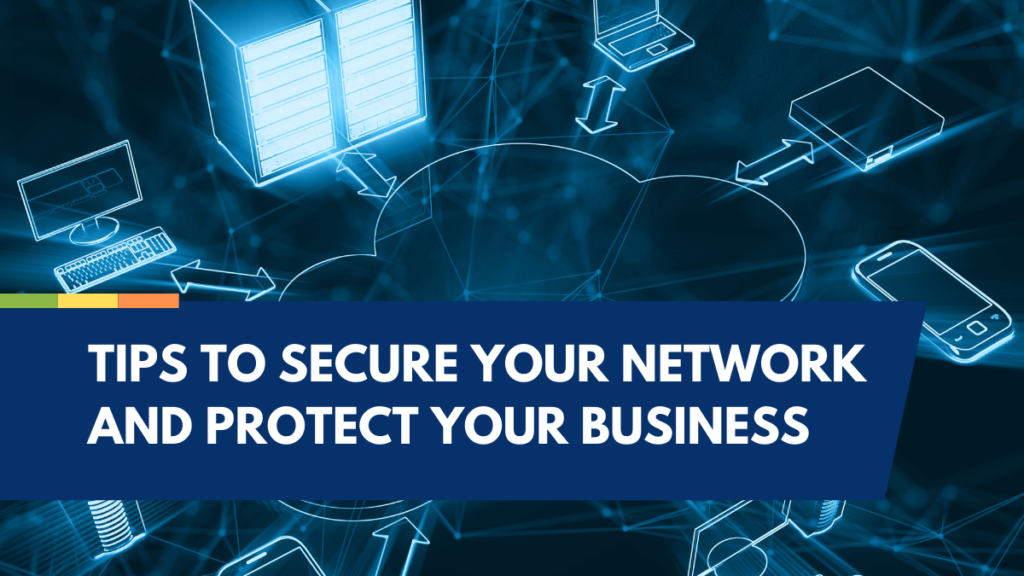The advancement in technology has also business to many severe kinds of Cyber security threats. As a business owner, you know that protecting your data is critical. A secure network not only safeguards the confidential information that gets sent through it but also helps protect your company from cybercrime and embezzlement. If your network is compromised, your confidential information could be stolen, and your entire business could be at risk. This article will discuss five tips to help secure your network and protect your business.
What is Network Security?

Network security is the practice of protecting your network’s integrity, availability, and confidentiality. Network security covers a wide range of activities including user authentication, encryption, data access control, firewall protection, and more. Network security also involves using antivirus software and other security measures to protect your network from malicious attacks.
Network Security Tips for Business:
Here are the top best network security tips every business should implement:
Carry out a Network Audit:
Network security starts with knowing exactly what’s on your Network. Network auditing and scanning is the first step to finding any vulnerabilities or inconsistencies that can lead to security breaches. Network auditing should be done regularly in order to ensure all of your systems are secure and running smoothly. The audit for your network security will depend on your organization’s size and how many devices and applications are connected to the network.
A network security audit is part of your organization’s cybersecurity processes and policies. It specifically assesses the company’s network. An example of something that falls under cybersecurity rather than network security would be if an employee walks out with data on a memory stick or shares proprietary information with a social engineering hacker.
Install Network Security Solutions:
Using Network security solutions like firewalls, anti-virus, and encryption is essential to protect your Network from external threats. Network security solutions can help protect your Network from malicious threats, such as viruses and malware, by scanning for them in real-time and blocking any malicious activity. Network security solutions can also help to protect your Network from unauthorized access by monitoring for suspicious behavior and blocking it. Many businesses invest in anti-virus and anti-malware software to protect all devices used by employees, such as desktop and laptop computers or mobile phones. This software is added to new devices when they are assigned to staff members.
Update Network Security Policies:
Creating and enforcing Network security policies is an important part of Network security. Network security policies should be regularly reviewed and updated as needed. Network security policies should include protocols for responding to Network security incidents, such as hacking attempts or data breaches. Network security policies should also cover how Network access is managed and who has access to confidential data. Network security policies should be communicated to all staff members, and Network access privileges should be managed and monitored on an ongoing basis.
Enable Network Monitoring:
Network monitoring enables you to detect Network security incidents in real-time, allowing you to take immediate action. Network monitoring services can help your business detect and block malicious traffic before reaching your Network. Network monitoring also helps you identify potential Network vulnerabilities that attackers could exploit. Network monitoring should be a part of your Network security strategy, as it can help you detect Network security incidents and respond quickly to limit the damage.
Train Network Users:
Training Network users on Network security and data protection is essential in protecting your Network. Training Network users will help them understand the risks associated with using the Network, how to recognize Network security threats, and how to take appropriate action when they encounter Network security incidents. Network users should also be trained on the Network security policies in place at your organization and any other security measures that have been implemented.
Invest in a VPN:
Investing in a Virtual Private Network (VPN) is another Network security measure that can help protect your Network from outside threats. A VPN encrypts Network traffic, making it difficult for malicious actors to access data or intercept communications. Additionally, a VPN can be used to securely connect remote users to the Network, allowing them to access data and applications without having to expose their Network traffic to the public Internet. Investing in a VPN is an important part of Network security and can help protect your Network from malicious actors.


